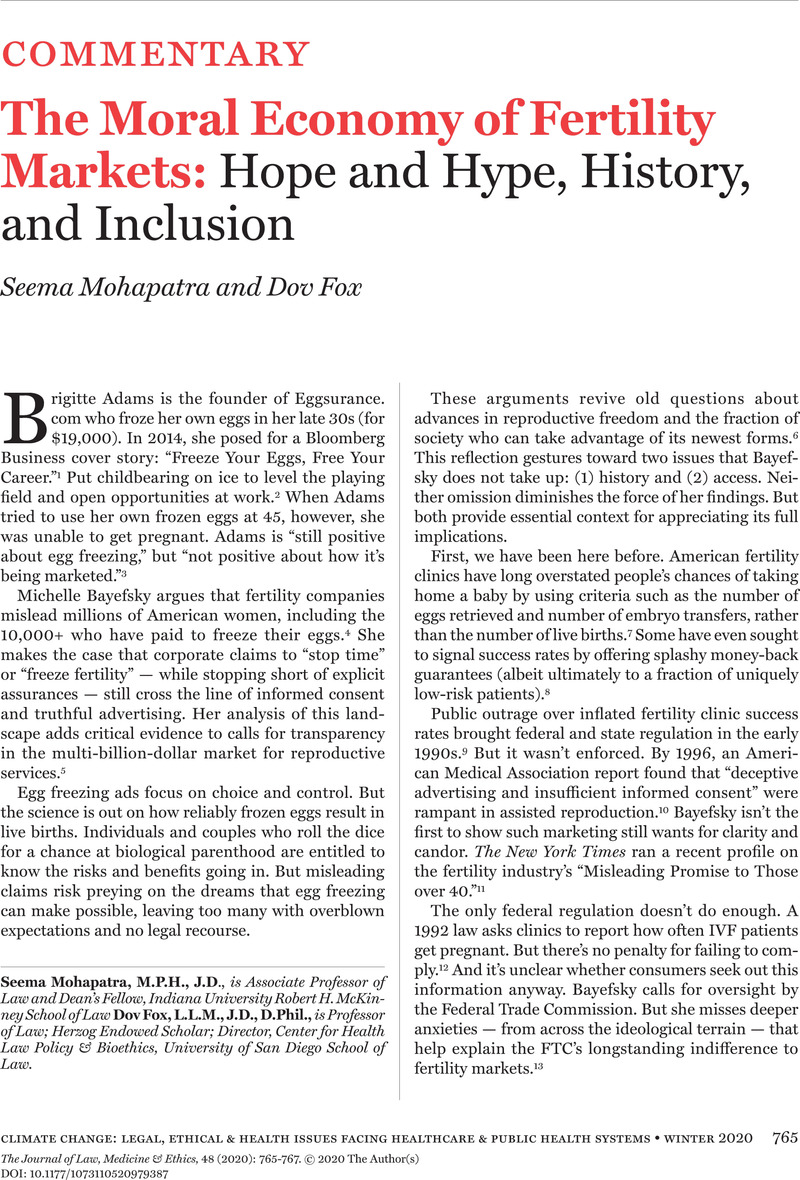Industry guidelines are
supposed to be required for professional membership, but studies show that most
clinics face no penalty for claiming without evidence that they pregnancy
success rates are “superior” or “among the best.”
Miller, W.K.,
“Assumption of What? Building Better Market
Architecture for Egg Donation,”
Tennessee Law Review
86, no.
1 (
2018):
33–
71, at
51–
52;
Abusief, M.E.,
Hornstein, M.D., and
Jain, T., “Assessment of United States Fertility Clinic Websites According
to the American Society for Reproductive Medicine (ASRM) / Society for Assisted
Reproductive Technology (SART) guidelines,”
Fertility and
Sterility 87, no. 1 (2007): 88–92.
Google Scholar